#its not pride month but the og drawing was made during pride month and i randomly picked it so
Text
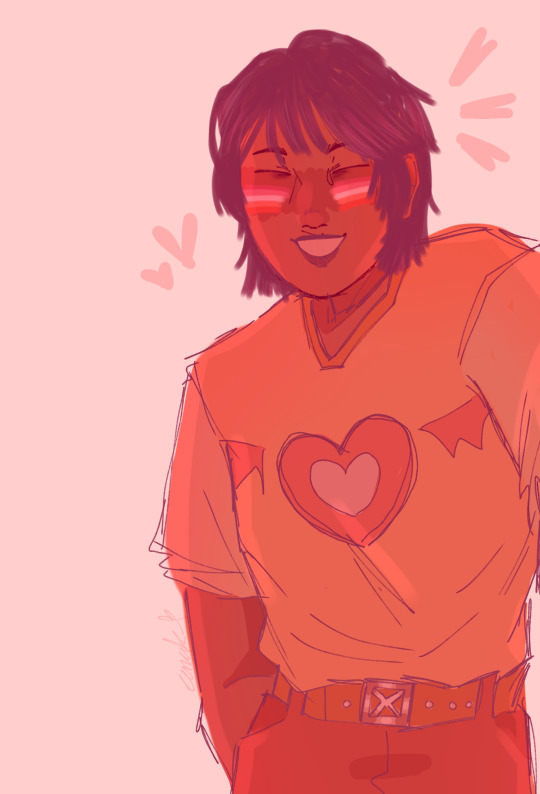
redraws are fun
(original under tha cut wweehoo)
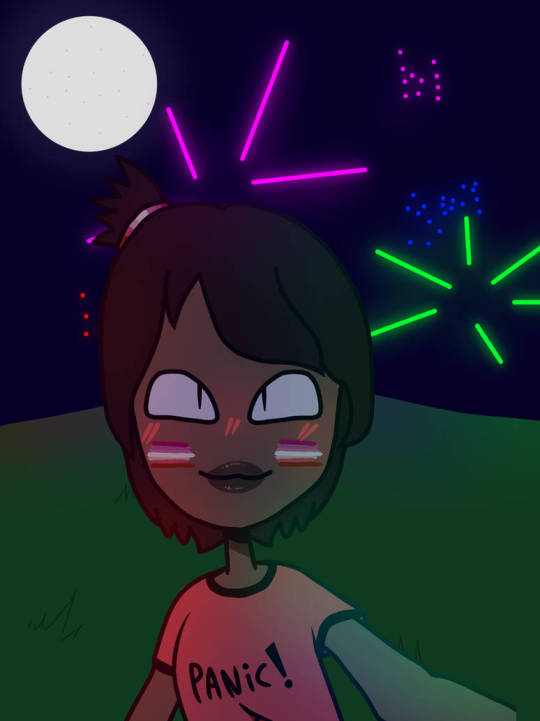
#original art#oc#original character#lesbian#pride#yeah.#its not pride month but the og drawing was made during pride month and i randomly picked it so#is this an oc? im never gonna draw her again so lmao#i hacked back into my old deviantart btw#not telling you what it is its the most cringe shit ever#i was so hashtag quirky its horrid#anyways enjoy the art lmfaooo
3 notes
·
View notes
Photo
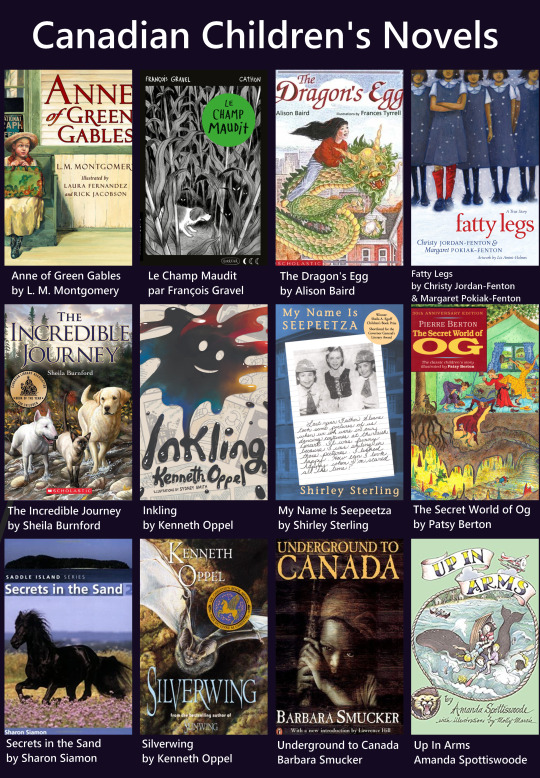
Since it’s 🍁 Canada Day 🍁 I figured I’d do the same thing I did for Pride Month and post a round up of Canadian books. Canadian literature has a tendency to be overlooked, but there’s some amazing gems out there!
That being said, this is definitely not a definitive list. There’s lot of lists out there that probably better, more relevant books. This is just a personal list as a Canadian person of Canadian lit I’ve read that stood out to me for whatever reason. I definitely encourage you though to look into some of the new Canadian novels being written write now, especially all the awesome own voice stories being written by First Nations authors across the country!
I’ve read a fair few Canadian novels over the years, so I’m going to break them up into one post of highlights each day for the remainder of the week: one for Children’s Novels / Chapter Books one for YA / Adult Novels, one for Graphic Novels and one for Picture Books.
Anne of Green Gables by L. M. Montgomery
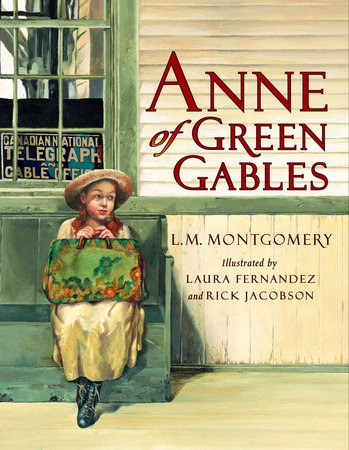
This is like… The Canadian Novel ™ isn’t it? I imagine that even if you’ve never heard of any other Canadian novel, you’ve probably heard of Anne of Green Gables, if for no other reason than it’s been adapted a million times over. If you’ve never bothered to read the original though, I highly recommend it. Since it was written in 1908 the language is definitely old-fashioned, but that somehow makes it engaging enough to keep an adult reader hooked, while not being too difficult for a child reader who’s moved on to full length novels. It also, of course, makes a fantastic read aloud – I’ve reread this book easily a dozen times over the years since first having it read aloud to me by my mom, during which we both bawled our eyes out together.
If you somehow haven’t heard of Anne, it’s about Anne Shirley, a wildly imaginative (and just wild) orphan girl who is adopted by the Cuthberts and brought to live with them on their Prince Edward Island farm, Green Gables. The Cuthberts had originally intended to adopt a boy who could help with the farm work, but when Matthew Cuthbert finds a girl waiting for him at the train station he can’t bring himself to turn her away. And so begins the hijinks and misadventures of Anne as she grows from child to young adult.
Le Champ Maudit by François Gravel
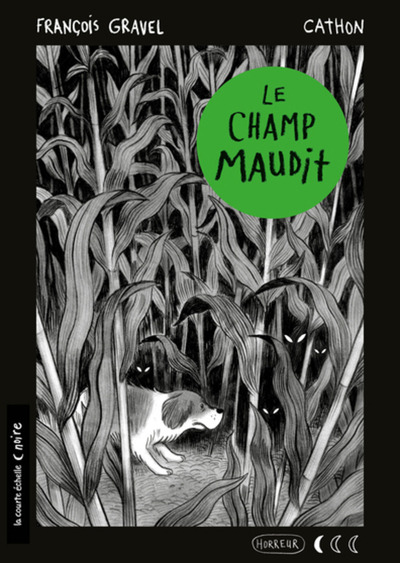
I’ve always loved the genre of child-horror and this book absolutely delivers. The creature, vieux Nick, and the way it exists in space is delightfully chilling even as an adult. The story is about Oliver, who has often been warned by his uncle not to go into the cornfields – it makes sense after all, the cornfields are vast and uniform, it would be easy to get lost in them. Oliver has no reason to assume there’s something more sinister lurking in them, or that it could be tied to the other people who have gone missing over the years. That is, not until he makes the mistake of chasing a rabbit into the stalks one evening…
The Dragon’s Egg by Alison Baird
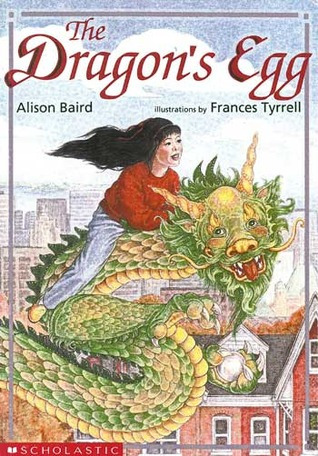
I was absolutely a “dragon kid” as a child, I loved any sort of dragon book I could get my hands on and I read this one over and over when I was in grade three. It’s about Ai Len who is given a lovely river stone by her father from his trip to China. Ai Len is shocked one night when, all of a sudden, she realizes that it wasn’t a stone at all, but rather a dragon’s egg. Lonely Ai Len befriends the baby dragon (who disguises himself as one of her gold fishes during the day) and helps him grow and learn as they try to figure out how he can get back home to the river his family inhabits.
Fatty Legs by Christy Jordan-Fenton and Margaret Pokiak-Fenton
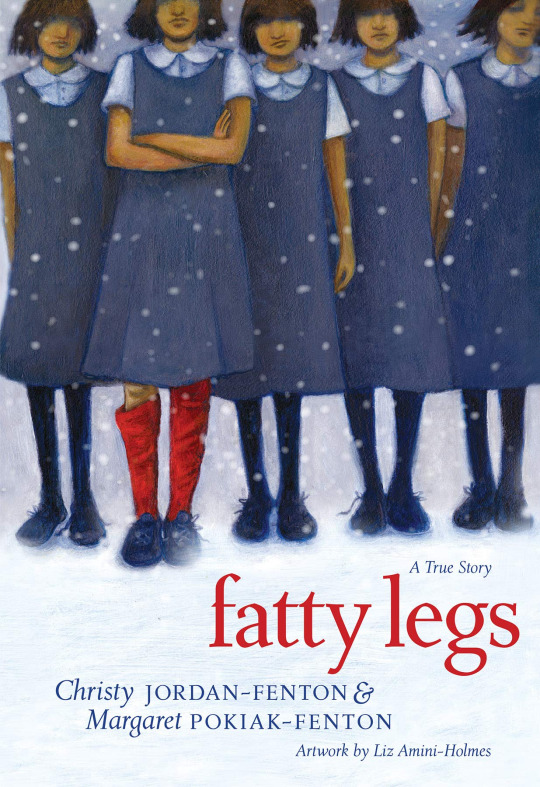
Fatty Legs is the true story account of Margaret Pokiak, an Inuvialuit child who grew up with her family in the Arctic. At the age of eight, despite their reputations and her father’s reluctance, Margaret begs to be allowed to attend the Catholic residential school because there was nothing she wanted more than to learn to read. There, far from her warm, loving family, Margaret learns about the cruelties and humilities of residential school. This book is a good introduction to residential schools for young children – it shows the horrors while still keeping the story child-friendly and relatable.
The Incredible Journey by Sheila Burnford
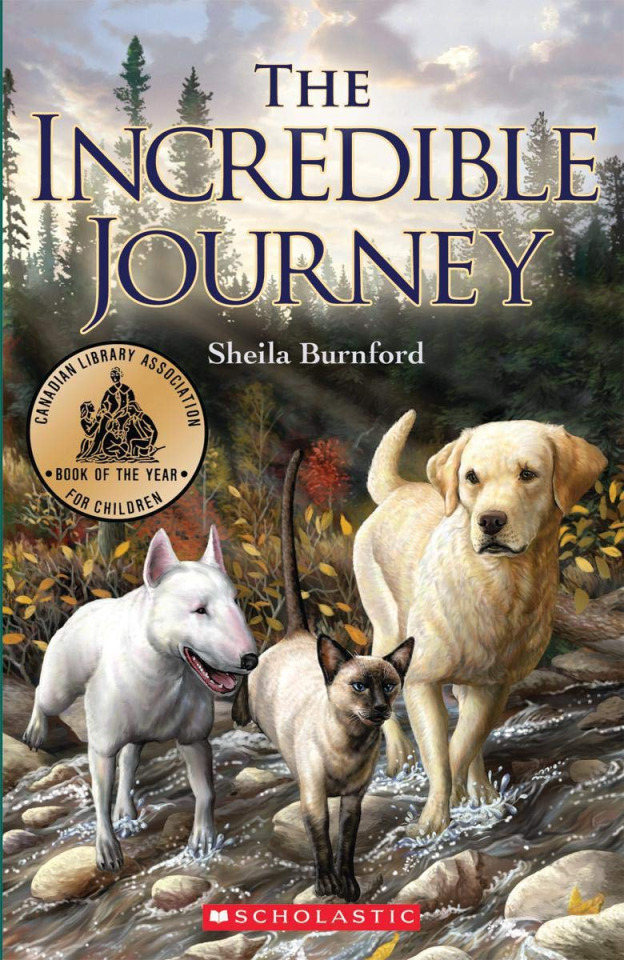
The classic novel that inspired Disney’s film Homeward Bound. This story is about three pets – two dogs and a cat – who are left behind under the care of a family friend at an isolated cabin. These three determined pets though refuse to abandon their humans that easily. After a couple weeks of no contact, a decision is made: they will make the trek across the dangerous North Ontario wilderness in order to find their owners. This is a great animal story that genuinely feels perilous at times as these three house pets are forced to contend against the elements, wild predators, and even other humans.
Inkling by Kenneth Oppel
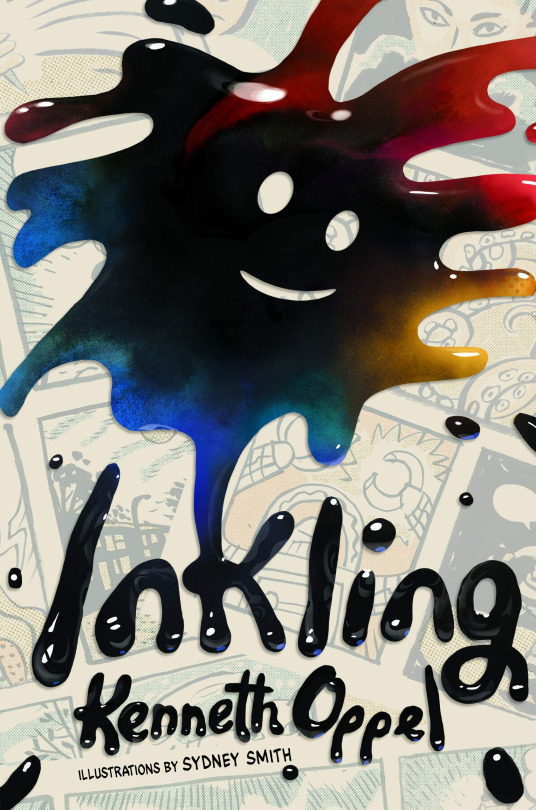
Kenneth Oppel is a human name in Canadian middle grade literature – not only is he a great writer, but an incredibly prolific one. If you have a middle school child in your life, consider checking out this man’s library of works because he has books that range across all sorts of different genres and topics, and they tend to be unique and gripping. They’re a staple in any Canadian school library.
Inkling is about a boy, Ethan, who is struggling with his life. His family has gone through a personal tragedy, his artist father is struggling to write a new graphic novel, and Ethan’s been entrusted with drawing the art for his school group’s graphic novel assignment, and he can’t bring himself to tell them his father’s talent wasn’t hereditary. Everything changes though, when one night, his father’s ink wakes up… This book is really heartwarming, with sweet family moments, lots of action, and an adorable ink blob that’s just trying to do its best.
My Name is Seepeetza by Shirley Sterling
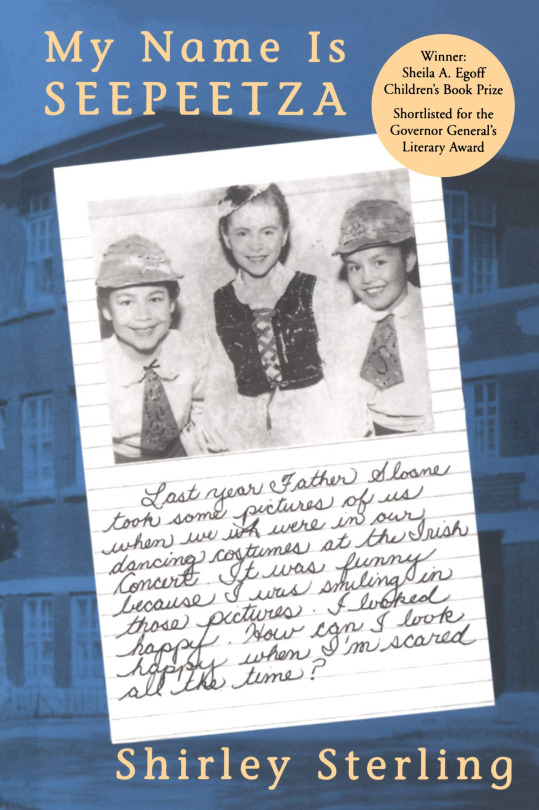
Another own voice novel, this time written by West Coast Salish and residential school survivor Shirley Sterling. This novel is written like a weekly diary by six year old Seepeetza who is taken from her joyous family home and forced into a residential boarding school. While there she is forced to change her name, her language, and all the things that made her life happy and complete. Despite all this, Seepeetza finds ways to survive and still find joy. This book is written for a slightly older audience than Fatty Legs, more of a thin middle grade novel but still balances the brutal horrors of residential schools with a child-friendly narration.
The Secret World of Og by Patsy Berton
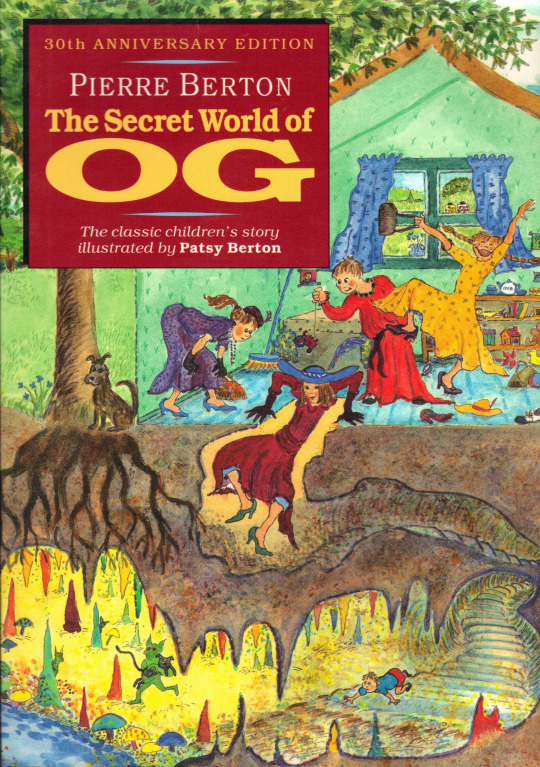
This is another Canadian children’s classic, though a much less well-known one than Anne of Green Gables. My mom read this to me and my brother in early elementary school, a chapter a night, and I remember being completely wrapped up in it and it’s strange, quirky pictures. It’s about the five Berton children who discover a strange, cavernous world hidden beneath their club house, inhabited by little creatures called Ogs.
Secrets in the Sand by Sharon Siamon

This is exactly what it looks like: a true to form Horse Girl book. There’s nothing overly special about it, but I read it this month and was charmed by it. This is technically the second book of the Saddle Island series (and she has two other Horse Girl related series as well though I haven’t read them) but for whatever reason I read the second first and actually enjoyed it more of the two. It has it all! A spunky, head-strong girl! Her best friend and annoying brother! A small, financially struggling Maritime town! A brave horse that loves the ocean and swims into underwater caves! The promise of pirate treasure! Saving The Family Farm (and rebuilding it from the ground up on a tiny island)! Want a fun mindless horse adventure? Well here it is!
Silverwing by Kenneth Oppel
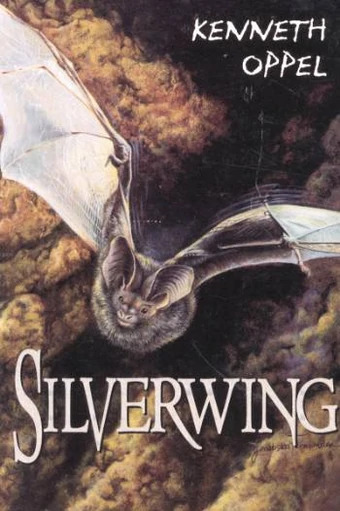
I know, I know, another Kenneth Oppel book but listen… he is so prolific and also it might be a crime to do a Canadian book list and not mention Silverwing. This was a childhood staple when I was growing up, practically everyone had either read it for class, read the entire series on their own because who wouldn’t want to, or watched the weird ass TV series. Or done all three! If you haven’t read Silverwing but like animal adventure stories, this is honestly one of the peaks of the entire genre imho. It’s about Shade, a small silverwing bat that struggles with the rules and limits placed around bat colony life. He’s constantly pushing things, constantly challenging others regardless of if they’re his bullying yearmates or if they’re the clan elders. But one day, Shade takes it too far and breaks a vital law: he stayed up and saw the sun. Now the owls are determined to have Shade killed and the clan is prepared to exile him for his transgression. All this just as the clan is preparing to migrate, and Shade, with his small runty wings, ends up falling further and further behind in the storm…
Underground to Canada by Barbara Smucker
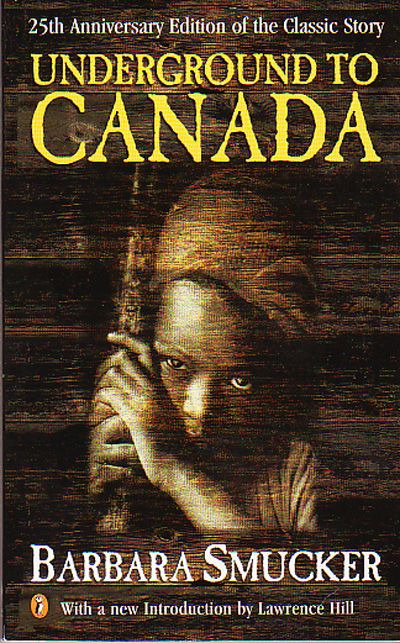
I debated whether or not to include this book, given all the BLM movements going on. This book isn’t own voice, and in the research I’ve done since becoming an adult has made me realize a number of the problems that surround it. But still, it felt wrong to leave out, both because of the social climate right now and because this was another classroom staple when I was growing up. It’s about a pair of young slave girls who are horribly abused on the planation they live on, and who eventually join in on a plot to run away, to find the rumoured “underground railroad”, a network of people who help black slaves escape captivity and escape – in this case across the border into Canada. Despite its flaws, this was a book we read in school and, through the book and classroom discussions, really introduced me to the concept of slavery and racism… and the fact that racism is still horribly alive today. It shook me as a child – it was written to be optimistic and adventurous for children, but it still had more violence and horror than I was used to in books at that age and it really shook me. So I included it in the list because, for me at least, I believe it had a positive effect on my growth as a person.
Up In Arms by Amanda Spottiswoode
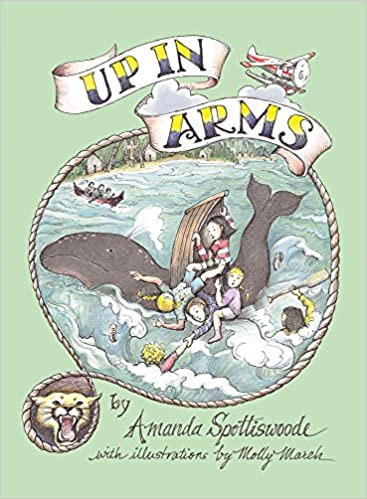
This is a woefully underrated series because it really delights me. It’s about six friends, spread across two families. Though they’re from the UK, this series is all about their adventures with their uncle in Canada. Spottiswood writes children travel adventures, all set around the 1940s. The first, Brother XII’s Treasure is a treasure hunt along the West Coast during a sailing vacation; the second, The Silver Lining take them into British Columbia’s interior on cattle drive as the kids get drawn into adventures on horseback, a familiar villain, and old mining secrets. This third book I actually read before the others, and is my favourite of the series. It’s back on BC’s west coast, only this time rather than a vacation the kids of be sent to Canada because of the outbreak of WWII. You get high-flying adventure, wilderness survival, and planning a heist to help right the wrongs done to a local Indigenous community by the white settlers. It’s just a lot of fun.
#chatter#book reviews#canada day#canadian literature#canadian lit#canlit#cancon#canadian books#book review#children literature#children novels#middle grade novels#kenneth oppel#inkling#silverwing#anne of green gables#l m montgomery#the dragon's egg#fatty legs#my name is seepeetza#secret world of og#saddle island#the incredible journey#homeward bound#i spent an obscene amount of time wrestling with tumblr to get this posted so i'm not actually gonna proof read#it'll be coherent enough for the handful of people that will probably even look at this
4 notes
·
View notes
Text
Episode 2 - E.E. Evans Pritchard
Episode link - https://open.spotify.com/episode/0LqJQ1q2kv5utkoct7V8Cg?si=485ef5c24837440e
John
I’m looking out over the plains of what was once Nuerland. The heavy clay earth is broken apart by the relentless sun. Deep cracks and the threaded depressions of rivers which rarely fill, even in the rainy season, are the only features on the dead flat, almost alien landscape. Around me cattle rest on the slightly (We hear gentle mooing) elevated sandy spot I found for my desk. From here I can see clear to the horizon where I spot sporadic patches of trees but all other greenery has browned and died back months ago. What these cows are living off is beyond me.
In years past the sodden clay retained water allowing certain plants to survive through the dry months. When the rain came this whole plain would be covered in grass reaching over my head as I sit behind my desk. Near the rivers edge they’d reach up to my shoulders even when standing. The rivers would fill then overflow making the whole plain a marshy swamp. At times like those this sandy mound would be prime real-estate and i’d be sharing space with far more cows.
Nowadays, this is South Sudan. The rainy season has become more sporadic and unpredictable. Often the relief of rains arrival is followed - shortly - by overwhelming flooding. Right now people are still waiting on that rain.
(we hear the wind starting to pick up)
The wind is picking up. A cloud of dust is rising on the plain. The horizon, with it’s sporadic trees and the cracked earth disappear from view behind a wall of air thick with clay. I can see about two cows away. Out of the dust emerges a figure. They’re walking towards me.
This is notes from the field desk.
Theme
oh! you. Look after what you told me in Papua new guinea I don’t think we should be talking. What are you doing here anyway? -
what do you mean am I following you? I am here by chance. My flight back to London from Brisbane got diverted because of technical fault with the plane and we landed in Juba. So there is no way I could have followed you here. If anything you’re probably followed me!
(sigh) Fine, I suppose there is no harm in you sitting here. There’s a tree stump just there you can listen to me record if you want. That is if you’re not busy organising a coup or whatever.
Anyway, when we got grounded in Juba I had a look through my collection. Oh, I should explain, I travel with a trunk of the one hundred most influential ethnographies, that’s what we call the books anthropologists write.
Side note, I never thought the trunk would be a problem, in all these Ethnographies they talk about getting porters to carry all their stuff, but when I asked at the airport for a porter, they just laughed at me?
Anyway, we were grounded a while before they cancelled the flight. So I had a look and it turns out another anthropological founding father did research in South Sudan. E.E.Evans-Pritchard. Or as I call him EEEE Pritchard. Okay well look, I don’t even want you to find my jokes funny so you just sit there rolling your eyes all you want.
Evans-Pritchard was a student of Malinowski at LSE and in the late 1920’s he set out for what was then Anglo-Egyptian Sudan. He wrote a couple of Ethnographies about the Azande which mostly focused on magic, kind of an obsession with early anthropologists. Then he headed south in 1930 to do research on the Nuer, which focused mostly on politics. A good hard subject we can get our teeth into! Anglo-Egyptian Sudan came Sudan in 1956, then split into the mostly Muslim North and mostly Christian South in 2011. Then in 2021 I arrived to do some peer-reviewing. I’m hoping Evan’s Pritchard is a bit less of a controversial figure so my students will get off my back.
(phone rings) ignore that, i’m ignoring, that’s nothing.
(Clearly still flustered) Okay, last time, we talked about the two sides of anthropology, the field and the desk. If Malinowski represents the innovation of field, you know participating in society, going native, spending years in the field. Then Evans-Pritchard is the OG anthropologist who developed the desk. Anthropology trades on being able to create a sense of being there through vivd description, where Malinowski could be a bit stiff and scientific Evans-Pritchard had a bit of flare with his flowing prose.
Is that cow looking at me? That one there with huge horns. I swear to god it’s looking at me.
Anyway, EP, I like calling him EP when I do he feels like a friend. (clear throat) He made drawings, he took tonnes of pictures, he described the plains, some of his diary crept into the ethnography. No racism as far as I could tell but He talks about being frustrated, he shows his work. A move towards modern anthropology. So reading his The Nuer, which is the ethnography he wrote about this region, is really like the experience of being here. Way less of a slog than boring old Malinowski.
(Email Chime)
Ohh an email, do you mind if I just check this? I just got assigned a student whose thesis i’m supervising. Very exciting. Shaping the next generation of anthropologists and all that.
okay, here we go.
“Dear Professor Johnson”
Not a professor but i’m quite pleased with that.
“I discussed briefly with Susan, uh-huh, during the introduction lecture that I’d be interested in researching the club scene, queer identity and youth in London. I’ve been reading tony Adams and Stacy Holman Jones on Auto-ethnography and that’s inspired me to try it myself. If you could point me in the direction of some readings to get myself started with.
All the best,”
I’ll leave their name out of it, bit of privacy. Hmm well i’m not sure about that. I mean really ethnography should be done in a rural place, not the city, should they even be doing research in the UK? This is anthropology not sociology. Plus auto-ethnography? I’ve never heard of it but we’re supposed to be studying the other not ourselves, this isn’t psychology. Hmm well I need to think about a reply, don’t want to stamp on the young fellows aspirations but he needs setting straight.
What is that cow doing. Is it - it’s coming over here isn’t it. Shoo, shoo! it’s licking me. Do something don’t just laugh. No do not nibble my suit! Argh. This suit cost a lot of money cow! Get off me. Shoo. Fine, i’m getting up. it’s your desk now!
Go on get out of here!
You know what happens now because you wouldn’t help me? We’re going to talk about theory. Yes groan away, there isn’t even a sea for you to paddle in this time so I guess you’ll just have to sit down there with the cows and listen.
This book actually is mostly about cows. All three hundred pages of it, I don’t think there is a single sentence that doesn’t mention cows or cattle or I don’t know bovine. I mean I like cows as much as the next englishman but it’s not exactly thrilling. But in fairness to Evans-Pritchard the Nuer didn’t exactly give him a choice. He said that
“whatever subject I would start on, and approaching it from whatever angle, we would soon be speaking of cows and oxen, heifers and steers, rams and sheep, hegoats and she-goats, calves and lambs and kids.”
Basically the Nuer loved cows. He said this fact was the underlying structure of Nuer society. So everything in Nuer society comes back to cows. Love, war, religion, politics, it was all about cows.
Our boy EP is a structural functionalist, - look the terms are important so just get used to it - meaning he thought there are underlying structures to all societies, that cause us to behave in a certain ways. Where Malinowski and functionalism thought post hoc ergo propter hoc - I can see you rolling your eyes, sometimes latin is useful! (deep sigh) Fine, i’ll explain it another way.
Malinowski would say the Nuer like cows because they give them milk - our boy EP would say okay but why love cows instead of say… soy beans which can also give you milk. It’s because the conditions the land in which the Nuer live aren’t good for growing soy beans, but they are good for raising cattle.
What would be a good comparison. Okay, Malinowski would say you like your iPhone because it gives you messages from friends. Those messages make you feel nice, so it fills a need. And EP might say, yes that’s true but it’s also possible that you like the phone because the underlying structure of Western society values objects especially expensive ones. Or else you’d have a nokia 3310. It still fills the same function but EP aims to explain why people choose one thing over another. If you’re a quote fan here is how Evans-Pritchard put it.
“Although the Nuer have a mixed pastoral-horticultural economy their country is more suitable for cattle husbandry than for horticulture, so that the environmental bias coincides with the bias of their interest and does not encourage a change in the balance in favour of horticulture.”
Oh there is a guy over there! (Shouting) Hey! Hey sir! Sir! Who do these cows belong to? Sir? (Biggish pause) (Snort in distance) He’s gone. Well I didn’t have time to chat anyway, i’ve got a tutorial. Just keep that cow away from me while I’m teaching. I doubt you care but here’s a Nuer song that Evans Pritchard translated.
Extract
The wind blows wira wira;
Where does it blow to?
It blows to the river. The shorthorn carries its full udder to the pastures;'
Let her be milked by Nyagaak;
My belly will be filled with milk. Thou pride of Nyawal,
Ever-quarrelling Rolnyang.
This country is overrun by strangers;
They throw our ornaments into the river;
They draw their water from the bank.
Blackhair my sister,
I am bewildered.
Blackhair my sister,
I am bewildered.
We are perplexed;
We gaze at the stars of God.
White ox good is my mother
And we the people of my sister. The people of Nyariau Bui.
As my black-rumped white ox. When I went to court the winsome lassie,
I am not a man whom girls refuse. We court girls by stealth in the night,
I and Kwejok Nyadeang.
We brought the ox across the river,
I and Kirj oak
And the son of my mother's sister Buth Gutjaak.
Friend, great ox of the spreading horns,
Which ever bellows amid the herd. Ox of the son.
Return from tutorial
You let the cows eat my notes!? I thought I said watch the cows! What happened? Was it that same cow again? What do you mean they all look the same, the one with the evil eyes!
Okay, so it seems like I missed some things again. The students pointed out that on page one of the preface, I might have skipped the preface, says “My study of the Nuer was undertaken at the request of, and was mainly financed by, the Government of the Anglo-Egyptian Sudan.” Which means the colonial government most likely paid for him to do the research because they wanted to control the Nuer. He describes them as violent willing to go to war over cattle at the drop of a hat. In text he says;
“At the present time cattle are the main cause of hostility
towards, and suspicion of, the Government, not so much on
account of present taxation as of earlier tax-gathering patrols
which were little more than cattle raids and of the avowedly
plundering expeditions of the Egyptian Government era that
preceded them.”
The students pointed out that given theat the government violently took their property, it was kind of understandable that the Nuer were angry. Again, if he was there trying to collect information so the colonial officers could control them, can we trust his findings?
During the second world war he used his ethnographic relationships to recruit Sudanese troops who he then led in Guerrilla warfare against the Italians. I said that sounds pretty cool right? Which made them angry, academic knowledge shouldn’t be used as a weapon to manipulate people into fighting in a war, which, regardless of the outcome would leave them colonised. They asked why we were spending so much time focussing on old men.
(Phone rings) Ignore that!
Pause takes a breath
I said fine, but we have to cover foundational figures who would they rather cover? What about Boas? He thought races were biological different and with some inferior to others. Ruth Benedict? They say she wrote a book for the US army in the Second World War about how to defeat the Japanese based on their culture without ever setting foot in Japan. Fine, Margret Mead? Exoticised the sex lives of Samoans and thought they were primitive.
I’m taking off this jacket it’s so hot and it’s got cow slobber all over the shoulder.
Well if all of them were racist then let’s just pack the whole thing in! They said I wasn’t understanding. I was thinking about racism as an individual failing caused by ignorance. But they weren’t ignorant, their racism was a product of society. In that way Evans-Pritchard was right. They lived during colonialism and the rise of the nation state. Which meant Nations had to justify their difference from others and their superiority over others.
People had to have a reason to believe in “Being British” rather than French or Sudanese. Or why would you think it was okay to rule them? Or to enforce boarders? These ideas of superiority and difference permeated the early anthropologists the same way the utility of cow herding led to the Nuer loving cattle. So everyone from that era was bound to be Colonialist.
They also said It doesn’t help that doing fieldwork confirms the differences between people. My head felt like it was going to explode. Still trying to figure it all out and it doesn’t help that that cow is still looking at me. I asked where they were getting all this from? Lentin and Visweswaren they said, apparently it’s on the reading list… I haven’t read the reading list.
(Phone rings once but he immediately hangs it up)
So, they said maybe next we could talk about Talal Asad. Apparently he is an anti-colonial ethnographer or something. I said fine whatever. They seem to know more than me anyway. Maybe we shouldn’t do fieldwork, maybe we should all do auto-ethnography. My students said maybe, but we still need to pay attention because racism hasn’t gone away, it’s still in our society. Which means we still might make arguments for it in our work unless we’re careful.
I guess before I do field work I should look at what the underlying structures of Britain are effecting my thinking. Not just my assumptions like I thought with Malinowski but what it means for a British person to turn up at a former colony. What does that act mean even before I start interacting with people.
I know that sounds like the same conclusion as episode one but my students assure me it’s subtly different. My head hurts, let’s go.
Nah leave the desk I’ll just get another.
Theme
This was notes from the field desk written by me James McGrail.
This episode references
Evans-Pritchard, E.E., The Nuer, 1940, Clarendon Press, Oxford.
Lentin, A. (2004). Racial states, anti-racist responses. Picking holes in 'Culture' and 'Human Rights'. European Journal of Social Theory 7(4): 427-443.
Pocock, D. (1975). Sir Edward Evans-Pritchard 1902–1973: An appreciation. Africa, 45(3)
Visweswaran, Kamala (1998) Race and the Culture of Anthropology, American Anthropologist 100/1: 70-83.
Theme ends
Susan
Do you think I’m stupid? You think I believe your flight got diverted to South Sudan? South Sudan? Oh and it just so happens that it’s thematically appropriate for your little podcast? Get back to London. Now. We need to have a serious conversation.
https://freesound.org/people/Mystikuum/sounds/401636/
https://freesound.org/people/JarredGibb/sounds/233143/
https://freesound.org/people/selcukartut/sounds/504882/
https://freesound.org/people/felix.blume/sounds/187756/
https://freesound.org/people/darrinsmith/sounds/274434/
https://freesound.org/people/InspectorJ/sounds/405561/
https://freesound.org/people/t-man95/sounds/553265/
0 notes